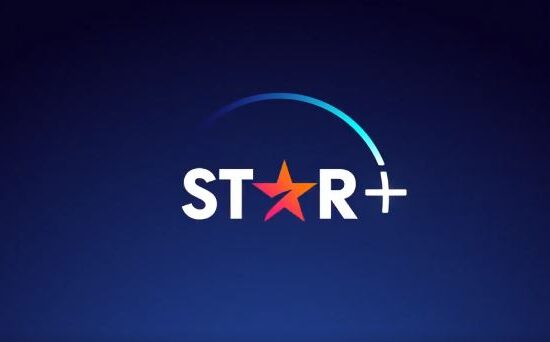
South Korea is known globally for its web series, movies and K-pop, with content including Squid Game and Parasite and groups like BTS and Blackpink becoming household names internationally. But there is another Korean cultural export – webtoons and their associated IP – that is starting to have an impact, not just in Korea, but around the world.
Webtoons are comics that have been designed specifically for mobile phones. Unlike Western comics and Japanese manga, they’re composed of single panels arranged vertically so that they can be easily scrolled through with one hand while you’re using the other to hang off the strap of your local commuter train.
Originating on the platforms of two Korean tech giants, Daum (which was later absorbed into Kakao) and Naver, in the early 2000s, the format is already huge across Asia and has become an invaluable source of IP for the region’s booming streaming industry.
Two Korean dramas currently ranking in Netflix’s global non-English Top 10 – Bloodhounds and See You In My 19th Life – are adaptations of webtoons from Naver’s Webtoon platform, along with Netflix shows All Of Us Are Dead, Sweet Home and Hellbound, and Disney+’s Connect, a Korean sci-fi series directed by Japan’s Takashi Miike.
Itaewon Class, Kakao webtoon & Netflix series
Kakao Entertainment Corp / Netflix
Adaptations from webtoons on Kakao’s platform include Netflix’s Itaewon Class, The Uncanny Counter and Business Proposal, AppleTV+’s Dr Brain and Disney+’s upcoming adaptation of Moving, created by Kang Full, one of the format’s pioneers.
“It’s become a very interactive format because it was developed for digital natives,” says Carol Choi, Disney’s head of Original Content Strategy, APAC, when asked what differentiates webtoons from manga. “You get constant feedback and comments – like why did you kill off this character off so early? And it’s part of the creator economy so it’s easier for new talent to break in.”
Choi also explains that webtoons can be easier to adapt than traditional Japanese manga, as it’s a relatively new format that is not locked into a decades-old publishing ecosystem: “IP in the manga world can be more complex, as it has a longer history and is based on physical comic books, whereas webtoons are newer and digital, so it’s all a bit more fluid.”
Similar to manga, however, the format encompasses a huge range of genres – across action, romance, LGBT, sci-fi, superheroes and horror – and is also starting to travel beyond Asia to North America and Europe. While Japan and China account for more than half of the export market, North America is starting to clock in at 16% and Europe with 6%, according to Korea Creative Content Agency (KOCCA).
It’s also a younger, female-skewing format – with Naver’s Webtoon platform estimating that 75% of its readers are Gen Z and Millennials, of which around 60% are female. “Gen Z are natural born creators, who are keen to share their stories with the world, so our platform has enabled them to meet a global fanbase while being supported by different business models,” says Ken Kim, the Los Angeles-based CEO of Webtoon North America. At last count, Webtoon had 85.6 million monthly active users, of which 12.5 million are in the U.S.

Moving (Disney+)
Charlie Park, head of global business at Kakao Entertainment’s Story Division, explains why Korean webtoons are starting to travel: “Many have universal story-telling values so are not exclusively reflecting Korean culture. But what is more important are the generational aspects. Our global audience is mostly Gen Z and the stories and themes that appeal to them are often more important than specific cultural elements.”
KOCCA also estimates that the Korean webtoon market grew fourfold to $1.23BN between 2017 and 2021, monetizing through a combination of micro-payments, advertising, merchandising and licensing rights for film and TV adaptations. But the domestic market can’t keep growing for ever and both Naver and Kakao are investing heavily in international growth.
Naver’s Webtoon, which it merged with Wattpad after acquiring the Toronto-based online literature platform in 2021, now has local-language platforms in the US, Latin America, France, Germany, Thailand, Indonesia and China. It is also partners with Japan’s Softbank in a long-established Japanese platform known as Line Manga.
Kakao has built out its global presence through the acquisition of three US-based platforms – Tapas (webtoons), Radish (novels) and Wuxiaworld (fantasy fiction) – and also operates the Piccoma webtoon platform in Japan and France. It also has local-language webtoon platforms under the Kakao brand in Thailand, Taiwan and Indonesia.
As the two big players expand, they’re seeing growth in, not just readers, but also popular creators who are coming from outside South Korea. Webtoon’s English-language platform is home to the hit Lore Olympus webtoon from New Zealand’s Rachel Smythe, which is being adapted as an animated series by The Jim Henson Company and Wattpad Webtoon Studios, as well as UK writer Alice Oseman’s Heartstopper, adapted as a live-action series by Netflix and See-Saw Films.
Popular webtoons from U.S.-based creators on Kakao’s Tapas platform include The Beginning After The End, written by TurtleMe, which has been exported to six local-language platforms, including Korea, Japan and France.

Lore Olympus (Rachel Smythe, WEBTOON)
Smythe says webtoons were a mostly unknown phenomenon in New Zealand when she started work in 2017 on Lore Olympus, a modern retelling of the love lives of the Greek gods and goddesses, which as of May 2023 had 1.3 billion views and 6.3 million subscribers.
“When it first released, I think readers were just greedy for a very sincere, large-scale romance, which wasn’t an adventure story with a romantic plotline, the romance was the core thing,” she says when asked to explain the webtoon’s appeal. “It’s also very unapologetic about how cheesy it is, and I think that level of vulnerability is attractive to people.” Most of the Lore Olympus audience is in the US, but it’s been translated into several languages and Smythe says she gets “some lovely fan art” from readers in Korea.
With such huge global fanbases, licensing stories from both Korean and international creators for adaptations outside of Korea is an obvious next step for both Naver and Kakao. The rest of Asia is already tapping into webtoon IP – last year’s China box office hit Moon Man was based on Korean artist Cho Seok’s 2016 webtoon Moon You, and Thailand’s GMMTV is currently adapting Maenggi Ki’s My ID Is Gangnam Beauty, one of many webtoon adaptations across Southeast Asia.
And despite the strength of its own manga and anime industries, Japan is also delving into Korean webtoon IP – Crunchyroll is working with Naver’s Webtoon platform on animated series based on several properties, including Tower Of God, Noblesse and God Of High School.
Now North America and Europe are starting to take notice. Following the merger between Wattpad and Webtoon in 2021, Naver established Wattpad Webtoon Studios to focus on licensing and producing webtoon and webnovel content internationally. (Naver is already a producer in Korea through Studio N, which produced Sweet Home, Bloodhounds and See You In My 19th Life).
Wattpad Webtoon Studios president, Aron Levitz, says the studio currently has more than 300 projects in various states of development and production globally, some through partnerships it has forged with companies including ViacomCBS International Studios, Fremantle and Leone Film Group.
“Naver committed $100M to the studio after the amalgamation of Wattpad and Webtoon, and that was to ensure that we could develop content where we need to, or invest where we need to, in stories that we see as important, bringing them to screens faster,” Levitz says.
So far, there have been more adaptations of Wattpad webnovels than the Webtoon content, with major Wattpad-based projects including Netflix movie The Kissing Booth and Prime Video film Perfect Addiction, the latter co-produced by Wattpad Webtoon Studios with Constantin Film and JB Pictures. In the Spanish-language space, Wattpad Webtoon Studios was involved in the production of Netflix films A Traves De Mi Ventana and its sequel A Traves Del Mar, based on Wattpad novels written by Adriana Godoy.
But the studio is also starting to build out its slate of webtoon adaptations in North America. In addition to the Lore Olympus series, it’s working with Roy Lee’s Vertigo Entertainment on an adaptation of horror webtoon Gremoryland, which has around 22 million readers.
Although both webtoons and webnovels are associated with Gen Z, Levitz says the adaptations often hit a much wider demographic, in the same way that The Hunger Games franchise reached beyond the core YA audience of the source novels: “If you look at something like Perfect Addiction, that was number one on Amazon globally when it was released, as the webnovel fans got it to the top of the list, but then the mass market kind of takes over,” Levitz says.
He also cites the example of zombie outbreak series All Of Us Are Dead, based on Joo Dong-geun’s webtoon: “It was Netflix’s top non-English show globally for five weeks and the most talked about topic on Twitter when it launched in January 2022. You can’t maintain the number one spot with just one quadrant.”
Kakao Entertainment is at an earlier stage in terms of international licensing and production activity, but recently secured $920M (KRW1.2 trillion) in funding through Saudi Arabia’s Public Investment Fund and Singapore’s GIC, some of which has been earmarked for international expansion of its Story, Media and Music divisions.

The Beginning After The End (TurtleMe, Tapas)
“In the Story division, we’re focused on generating greater growth across North America and Asia. In North America, we plan to accelerate growth of the three platforms (Tapas, Radish and Wuxiaworld) under our subsidiary Tapas Entertainment,” explains Park.
“A key strategy, aside from exporting high-quality Korean stories, is supporting U.S. creators to allow for the creation of content that American users will love and consume. The Beginning After The End is a great example of this, and we will invest in producing similar success cases.”
Park adds that the next step after building up the international webtoon platforms is to get involved in licensing and, in some cases, producing adaptations. Like Naver, Kakao is already a major producer in Korea where it owns several production companies, including Kross Pictures, which produced Business Proposal for Netflix. It also owns Baram Pictures (Kingdom: Ashin Of The North), Logos Film (Vincenzo) and Zip Cinema (Broker) so is also making a huge amount of film and TV content not based on webtoon IP.
Now Kakao Entertainment aims to bring some of that expertise to international markets and recently moved its U.S. headquarters from San Francisco to Los Angeles to be closer to the production community. “We seek mutual growth with the American audience by exporting, not just webtoons, but also our expertise in this field to produce engaging local content,” says Park.
As this ambitious industry expands, it’s likely to encounter headwinds, as the main players are tech companies and face the same challenges of industry-wide retrenchment and the disruptive power of A.I. as the wider tech industry.
But they come bearing the twin holy grails of cash and IP, so we can expect to hear a lot more about webtoon-based content in international markets in the future. “We have more than 900,000 creators on our platform, so that’s a lot of stories, but the strength of this format is that their success is not determined by editors or curators,” concludes Webtoon’s Ken Kim. “The final judgement comes from tens of millions of demanding readers.”














